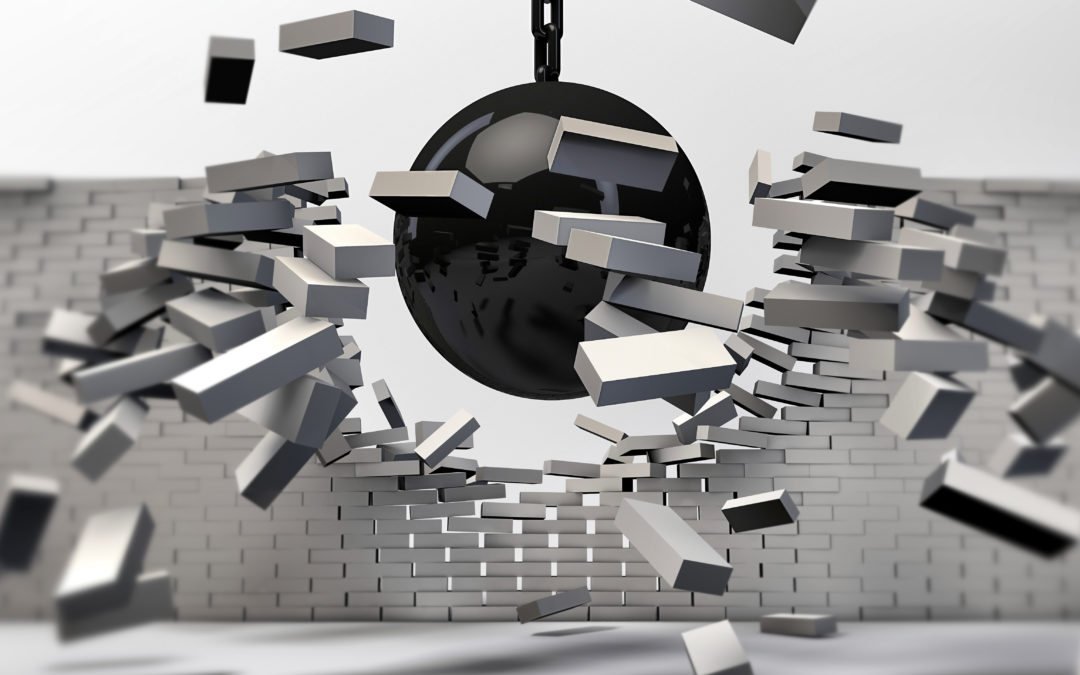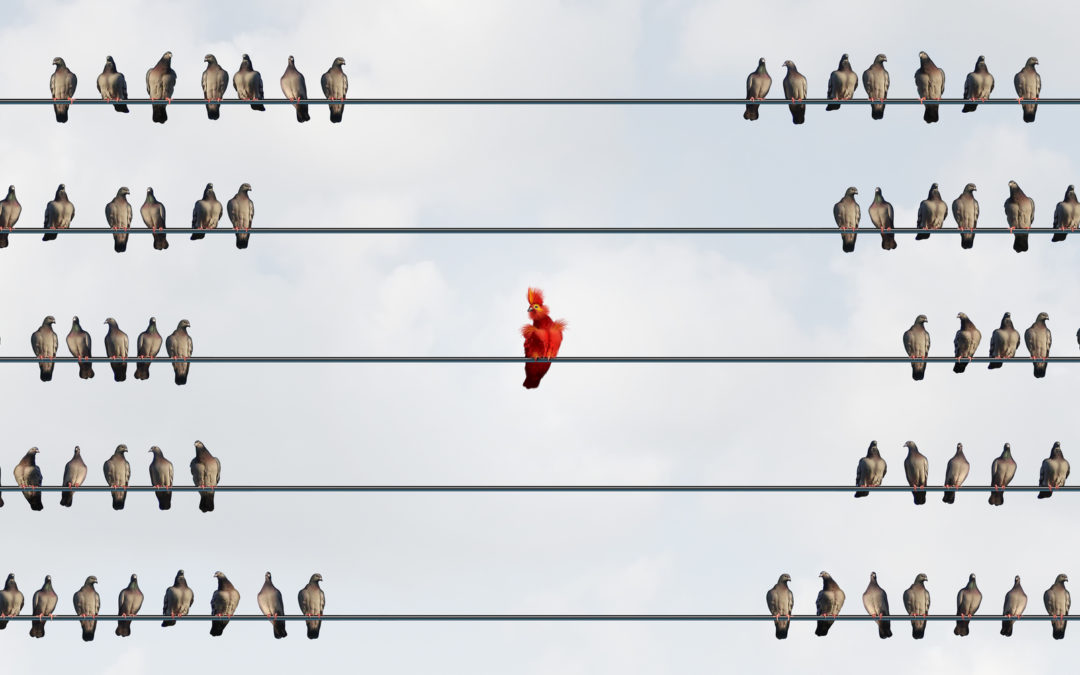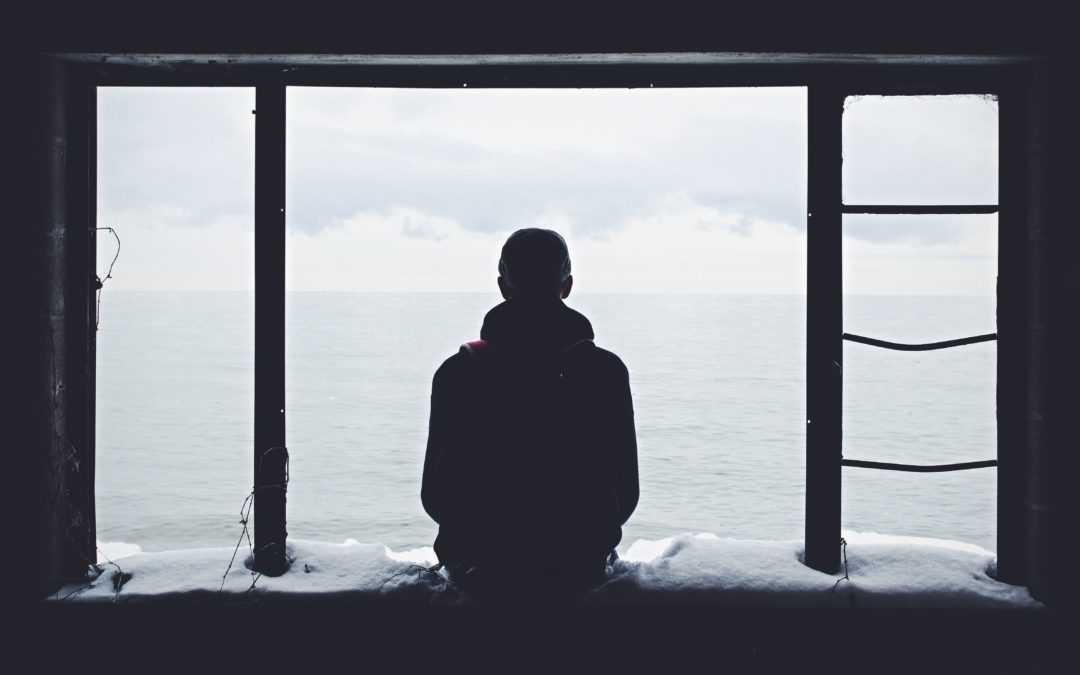
Let’s Talk about Sex … ual Abuse
In my role as a life coach, I have a lot of difficult conversations. But I absolutely love my role of helping others overcome their trauma. My favorite part is breaking down the walls of shame by talking about what hasn’t been talked about. There is one conversation that always rises to the top as the most shame-busting topic. That conversation is the one about sex. It starts as a discussion about sexual abuse and the victimization they experienced. But very quickly, it turns to the present moment. It turns to their perceived sexual dysfunction. But there’s a reason for that. There is so much shame around our sexual survival mechanisms. And it feeds our unworthiness. So we often cannot talk about our victimization until we determine we aren’t a part of the problem.
The survival mechanisms that come from sexual abuse are not by accident. They are meant to perpetuate shame. Pedophiles and sex abusers know exactly how to keep their victims quiet. Make them think there is something wrong with them. Make them think it is their fault. But in reality, we are responding normally to your abuse. We are not crazy. We are not born this way. We are not “just like our abusers”. They are directly linked to our experiences of abuse.
It became obvious to me this week that I needed to write about this. I have been assured by many of my clients that had they known this happens to all of us, they would have discussed this sooner. And if there is one thing I absolutely know about shame, it cannot survive in the light. What does that mean? When we share with someone who says “me too”, the shame moves out. It can’t stay. So this blog post is meant to get people sharing. This post is a shame buster. Here are some of the most common sexual survival mechanisms we don’t talk about.
We Don’t Want Sex. After being forced for many years, it might not come as a surprise that we don’t want it. But it can be a problem in moving forward with our lives. Even when we deeply love another person, apathy toward sex can keep us from the connection we want. To our partners, it can be a major source of frustration. So we may be shamed for not wanting sex. Partners can turn a lack of sex into a discussion about what is wrong with us. And after years of feeling unworthy, this doesn’t help us find healing. When we can accept how sex can be re-traumatizing, it can help us let go of that shame.
Sexual Arousal During Recovery. Sexual arousal does not mean you are consenting to sex. I repeat. Sexual arousal does not mean consent. I know this is not what you were told. Your abusers needed you to believe that you “liked it”, so they used your arousal against you. In reality, your arousal was a way to keep your body safe during sex. A lack of arousal can cause additional pain and damage and your body knows that. It was not betraying you. It was protecting you. So when you are retrieving memories (or in a flashback) of sexual abuse, you may become aroused. This is a flashback. And this does not mean you wanted this abuse. It does not mean you want it now. Accepting this will be so helpful in your healing.
Being Turned on by Force, Rape or Control. Sexual abuse messes with a child’s brain. It makes a child equate sex and force. That child becomes wired to respond sexually to power differentials in all forms. A child might play this out through excessive masturbation or with other children in an attempt to make sense of their experiences. This can lead an adult survivor to an interest in BDSM. It can also create an aroused response to violence on television or in real life. But one of the most common stories I hear from survivors is a need to fantasize about forced scenarios in order to orgasm. This is completely normal. Sexual abuse wires us this way. We never experienced sex with love. We experienced sex with force. And it is completely normal.
Repeating Fetishes from our Abusers. If someone is willing to resort to pedophilia to deal with the pain of their trauma, they are probably willing to do many things. And the fetishes of abusers can pile even more shame onto their victims. They can make abuse victims think there is even more wrong with them to attract such ridiculous behaviors. But fetishes are formed from trauma. They are passed down from abuser to victim. And if you have an urge to repeat a fetish, you have an inner part who has taken that on as a survival mechanism (more than likely, a freedom fighter). With acceptance and expression, this part’s urges will dissipate. But acceptance can’t happen with the shame-response still in place.
Body Memories. The idea of body memories may not be particularly shameful at first glance. Body memories are a normal and natural part of trauma recovery. It could be something like feeling pressure on the upper arm because we were grabbed as a child. It could be an emotion which needs expression. But body memories about sexual abuse are extremely common. You could be working at your desk and suddenly have the full-body sensation you are being raped. This is an inner part sharing with you. They have a memory and they need your help processing it. And yes. This is a frequent and normal part of sexual abuse recovery. There is nothing wrong with you.
You may be feeling some relief after reading this. If you have repressed memories, you might be feeling panicked because I just made sense of your experiences. But no matter what, you probably want to know if there is hope. If all this is wired, can we change it? We absolutely can change it. But it won’t change until we help our inner parts express their emotions and memories. And that will come with acceptance and understanding of what happened to us and how it impacted us. So let’s bust through this shame and see our survival strategies for what they are. There is nothing wrong with you. There is nothing wrong with us. There is no shame in surviving.

Making Peace with the Holidays
The holidays are here. And while everyday life is triggering after trauma, the holidays take those triggers to another level. We are inundated with the imagery of a perfect family. Even though we may grasp the idea that no family really lives up to the image in the media, we also know that our family dysfunction went above and beyond the norm. We would give anything to have the annoying uncle or the overly competitive sister as the worst of our problems. But that’s not what is happening for us. Whether we choose to continue navigating the family dynamics, limit contact or cut off contact completely, we will be spending the holidays without real family – literally or figuratively. For many of us, we will be alone. And while we have tried hard to count the blessings we do have, we know there is something missing.
But what can we do about it? How can we change the holidays into a time of inner peace? Many of us spend our time trying to create better external circumstances. But our holiday situation is not going to meet society’s standards. There is hope though. We can find a way to make the holidays pleasant and peaceful even if those around us don’t support that plan. Here are some suggestions for bringing new peace to your holiday season.
Conquer the guilt. Whether or not you are in contact with family, you will deal with guilt if you do things your way. The guilt will either come from external people or it will come from the internalization of the guilt trips you have received since birth. Either way, you must address that guilt in a new way. Most importantly, you must NOT do what it says. But you can’t ignore it either. It will just get louder and louder. If it is coming from others, let them know the guilt isn’t going to work. Respond from an empowered place, call it out and let the other person know you will not be swayed by it. If it is coming from within, bring awareness to it by writing from it. Let those parts of self express. The more you do this, the more you can let the guilt go and make the right decisions for you.
Address the fear. When you guilt yourself to do things for others, there is almost always an underlying fear driving that guilt. Those fears will keep you focused on avoiding rejection and abandonment. You will be driven by the need to be “normal”, to fit in with others and to have approval from society. While these beliefs were critical to surviving childhood, they are not helpful now. They will hold you back from the peace you desire. Get to know the fears and let them express in writing too. As you release these fears, you will be able to avoid the societal trap that keeps you focused on the wrong priorities.
Set boundaries. Nobody gets to create your holiday experience for you. Only you get to do that. You don’t have to say yes to any request. I understand you might have children and traditions you have set around your immediate family. But you get to say no to whatever isn’t working for you anymore. I have dropped traditions that were taking too much of my time and energy at home to a surprisingly calm reaction from my children. And when it comes to extended family, you don’t have to do anything they request. You get to say no if it is adding stress. Family gatherings? No. Christmas cards? Nope. Baking? That’s what bakeries are for. If it adds stress, throw it out. And when you feel the guilt and fear start in, refer to the previous steps.
Get to know and accept yourself. There is nothing like the holidays to get to know who you are and what you want. This isn’t just about self-care (but that matters). It is about understanding what you want and focusing on your needs. But it also means exploring those parts of self that have been rejected, first by others and then by yourself. The more you can know who you are, the more you can create a holiday experience that fulfills you. When the requests start to flow in, don’t answer right away. Take the time to check in with yourself first. Check in with how your body and psyche are reacting to the request. Write from the reaction. Make your decisions based on what you want and not others. Build a relationship with yourself this holiday season. Give yourself that gift.

The Purpose of Obstacles
I have been sick the past few days. I shouldn’t complain. It has been years since I have been sick. I used to get sick every three months before I started this recovery work. As a matter of a fact, when I became a single mother, my greatest fear was handling my children alone while sick. But what I have come to understand is most married mothers are handling their children alone while sick. So in general, motherhood while sick is going to be extremely difficult. But my children are older now. And I can rest more now. There are certainly downsides to having tweens, but rest time is available. But there is a holiday in America tomorrow. If there is one thing I have learned, holidays were not created to give rest to mothers. In my opinion, Thanksgiving is the least restful holiday.
My inner system has something to say right now. I can tell I am opening up in new ways to my authenticity. This process is scaring the hell out of my defenders. And they are fighting back. Hence the illness. Yes. Our parts and their emotional blocks make us sick. That is one of the earliest recovery lessons I learned. I also learned that processing these blocks can make us feel better. But it’s not easy to do. When we are tired and sick, we really don’t want to use any energy for emotional expression. But I have been processing these blocks anyway. One of the reasons I am successful at teaching this work is that I am doing this work. That is some of the best motivation there is. I know that whatever I learn, I can bring to my clients.
What I am learning from my karma kid is not necessarily new, but it is a new level. I am continuously amazed at how our lives were orchestrated to build obstacles in the way of our most authentic lives. I do not see this as an evil or malicious attempt to annihilate our most authentic selves (although if you do, I understand that sentiment). I have come to see this as our journey. I now see a purposeful life as a journey through the obstacles created by our past so we can be who we are. Unlike the linear understanding that we must complete recovery before we live a purposeful life (a controller view), I have come to understand that this work is a part of purpose, a part of life. We are here to move toward authenticity. It truly is our life’s work.
But how? It seems like the cards are stacked against us. And they are. But when we get how this works and can bring awareness to those obstacles, we can get the upper hand on them. What do they look like? Here are some ways I have seen this play out in my own life.
Obstacles show up as guilt and shame. Oppression comes in many forms, but when people in communities and families have become convinced they cannot achieve their own dreams, they aren’t going to be supportive of ours. They have learned that following dreams is a selfish endeavor. They have shut down their own hope for an authentic life. So they will naturally project that on to us. And this will start at a young age. To be authentic, we must be willing to question all the guilt-ridden messages from others about how life is supposed to work. Start by asking yourself if it is really selfish to do what you love.
Obstacles manifest as apparent external problems. When we grow up listening to scarcity-based beliefs, our brains are wired to see external problems as impassible. But external problems are there to be questioned. If you cannot find the support from others to follow your dreams, ask yourself if you need it. If you don’t have the time to manifest your greatest vision, ask yourself if you can manifest the first step. If you don’t have the money to go “all in” right now, ask yourself what you can get done with the money you have now (even if it is nothing). These external problems stop you because the defenders want to be stopped. Start by asking yourself if it is really an obstacle.
Obstacles live in the unconscious. One of the biggest obstacles to our purpose is that we don’t remember what is stopping us. We were taught to see the world a certain way and it lives in our unconscious. It rules our lives. One of the most important steps we can take in our purpose is to look for where we are stuck. If we are not moving in a certain area of our lives, there are unconscious beliefs stopping us. Start by asking how you believe you cannot achieve your purpose. Try writing from the answer.
Obstacles can appear magical. When it comes to karma kid, it is important to consider how our beliefs might be magical in nature. It is one thing to defy the majority of the human population who believes purpose is selfish and unattainable. It is an entirely different scale to believe the universe is against your plans too. Start by asking how you might believe you are up against a powerful magical force. Bringing this understanding to light can have a major impact on moving forward.
If we can see obstacles for what they are and take the time to understand why they are there, we can methodically move them out. If we learn to question our beliefs and bring awareness to the unconscious, we can build the ability to move past these blocks and manifest our most authentic life. It is a long journey. It is a life-long journey. But as we move through these obstacles, we will see life open up to us in ways we never imagined. The next time an obstacle makes itself known, take the time to question it. You will find it was meant to be overcome.

Don’t Forget the Emotions
As parents, we teach our children many things. We teach them math, science, reading and writing. We teach them to wash their hands and flush the toilet (every damn day). We teach them to be respectful, to say please and thank you. And in this day and age, we teach them about the environment and how to stay safe at school. But we forget the most important thing. And if you have been reading this blog for a while, you know what I am going to say. We don’t teach them what to do with their emotions. We don’t teach them why they have emotions. And we don’t teach them what it means for them when other children (and adults) judge or play with their emotions. We don’t teach them emotional intelligence.
My own son can be explosive at moments. He struggles with his own fear which he has come by honestly. His life hasn’t been easy for a little guy. I am proud to say it hasn’t been like mine. I ended the generational abuse and trafficking. I am proud of that. But it came at a cost. When I got strong, everyone left. And if they didn’t leave, I had to kick them out. So as a very young child, his father and most of my extended family disappeared from his life. He spent his young life desperately trying to hold on to anyone who came around. And some of them left too but not for the same reasons (we had Au Pairs who stay for a year or two). And no matter how many times he begged me for a new father (gut-wrenching for me), I knew better than to bring in a new man with all that trauma in my system. I decided that no father was better than an abuser … at least for a while.
But this mass abandonment has taken its toll. And when you add in my own emotional regulation issues in the early days, it is no wonder my son can be a bit explosive. But with that comes problems. Children read energy. That can be good and bad because some children are looking for a way to feel powerful. This is especially true for children who are being cut down at home. So when they find a kid who can’t always hold it together, they provoke. This is incredibly frustrating in a classroom setting because the kid who provokes always flies under the radar. But the kid who explodes is the problem child.
By the way, if this is sounding familiar, it is a common tactic used in adult relationships too. If one person wants to prove the other person is the problem, they will find the triggers and poke at them until the explosion comes. Then they get to tell the other person that all the relationship problems are a result of their lack of emotional stability. The provoked becomes the abuser while the provoker is the victim. I see it all the time. It is patterns like this that require emotional intelligence to overcome. This is why I have spent the past three years teaching my son about the concept of “gray rocking”. If you haven’t heard of it, that may be purposeful. No abuser wants people to know about it. So here is a short explanation.
When you are interacting with someone who gives you the indication they want to control your emotions, don’t show any. Don’t show any reaction at all. Don’t give them any information at all. Is this easy? Absolutely not. The love seeker will want to impress them. And the mean kid will want to tear their head off. But this is the number one boundary you need to set with them. I have been teaching my son this concept for the past few years. And he is good at doing it when he knows what is happening, but sometimes misses the cues until it is too late. That is what almost happened the other night.
My children are participating in Cotillion. I thought that sounded like the worst thing ever until we went there. I absolutely love watching my kids learn to dance. I sit in the balcony and thoroughly enjoy myself for an hour. It helps that I am in love with ballroom dancing too. But most parents seem to have as much fun as the kids. And yes. The kids have fun (even with the eye rolls). But before the Halloween dance started, I witnessed something that unnerved me. My son was wearing a costume that nobody his age recognized. It was an Anime cosplay costume. He knew it was a risky choice, but it was what he wanted. The costume had an element that looked like a fidget spinner. One boy pointed out the resemblance and my son got upset saying loudly, “It’s not a fidget spinner.” He was worked up. And the boy knew it. I watched as he started telling all his friends to tell my son the same thing. I watched him plot while I sat there wanting to punch him in the face. And I watched my son getting more worked up with each interaction. I could hear an inner voice saying, “Don’t hover. Don’t hover. Don’t hover.” But my feet carried me down the steps anyway.
I called to him in a very nonchalant way. I just said I needed to tell him something. And he’s still young enough to acknowledge my existence in front of others. I didn’t lecture. I didn’t turn into one of those annoying moms. I just said I saw what happened and those boys were plotting. It was all on purpose. I made it sound like I was his spy giving him valuable information. I said it was time for the “gray rock”. He understood. The next boy got no response but a shrug of the shoulders. And it was over. Just like that, the “Lord of the Flies” episode ended. The boys when back to their hormonal imbalances and my son was in the clear. And I realized in that moment that I was proud of myself for two things. First, I didn’t punch that kid in the face. Second, I didn’t hover. I took advantage of a teachable moment. I taught emotional intelligence. We can’t fix the world for our children, but we can help our children emotionally cope with it. If we do, the world will start to shift. If we don’t, we didn’t do our job.

Let’s Get Real
Today is blog day. And I am going to be real. I don’t feel like writing a blog. It happens sometimes. But I try not to show it. There are days in all our lives when doing things is a struggle. And that goes for helpers, therapists and life coaches too. Let’s face it. If we all waited until we were perfect to help others, we would never start. I get that you see the social media persona, the live stream video person, the consistent blogger who never seems to miss a beat. But that’s not always who I am. Sometimes I feel like it is all too much. Sometimes I feel like it is not making a difference. Sometimes I feel like I am running and running and running, but not getting anywhere.
Deep down inside, I know those are the lies that futility brings. And I am lucky these days. I don’t have to work as hard to see the truth. My life is not perfect, but it was created by me. And that makes it much better than it was. The “help” I used to have wasn’t real help. The money I made came from a job I hated. The things I bought gave me no joy. But they looked good on the outside. Maybe to external unaware people, my old life looked better than the life I have now. But that’s not true. And I know it.
But I have tired parts. My controller still runs them ragged sometimes. And there are those moments when I get blindsided by a problem I didn’t see coming. This is my biggest trigger. My controller’s hypervigilance has failed and the resulting futility can send me into a spiral. That’s what happened Monday. My kids’ first grading period ended on Friday and I was beside myself with the amazing job they had done. This was their first grading experience in their first public school. And I promised them we would be a team through this transition. And we were. I’m not going to lie. I managed things closely. I am a recovering hoverer. But I didn’t do the work for them. I just reminded them of the work that needed to be done. I handled the logistics. (Why the hell do we think 11-year-olds can handle those logistics?) And they showed just how smart they really are.
They are pretty damn smart too. On Friday, my son had straight A’s with one B+. This is remarkable considering he went to this school testing several grades back in spelling and sight reading. I was told by others (not the school) that he would need an IEP. It was suggested he be held back a year. I ignored it all. I knew better. I knew my son. And he stepped up to the challenge. I know how smart he is. He had tests he “forgot” to mention to me (so he didn’t have to study at home) but he got A’s on them. No amount of hovering is going to give him that ability. And my daughter stepped up too. She runs high on the anxiety scale and I worried about how she would handle the tests. The first few tests were disastrous. I was concerned. But then she figured it out and finished with A’s and B’s.
I saw it as a miracle. I expected a disaster and the disaster didn’t happen. Whew! I dodged a bullet there. Lucky me. And then Monday happened. Large in-class project grades were suddenly posted. And two grades plummeted (one each). I freaked out. What the hell? How are these just showing up? They were worth more than 30% of their grades. A’s suddenly became B’s. In one case, it was justified and we were given the day to fix it. My daughter was overwhelmed with the formatting in a Google doc and chose not to do it. Not a good decision on her part, but haven’t we all been there? But my son’s situation was brutal. He forgot to put labels on a PowerPoint and got a C. Labels took his A+ to a B+. What? How does this teach our kids about the real world? It doesn’t. It just gives them anxiety. And with one other logistical issue in another class (his fault), his grades changed to 3 A’s and 3 B+’s. Blindsided.
And I melted down. You might be thinking, “Get a grip. Big deal. What the hell is your problem?” Believe me, I have thought it all. But the time I put in to this transition was monumental. In many ways, my business suffered from lack of attention. My mental health definitely suffered. My sleep suffered. And let’s face it, it was stressful for the kids to make this shift. Their anxiety was higher than normal. But the three of us had done it! We had made this transition and survived it with flying colors. We proved so many people wrong. And that hasn’t changed. But the message changed. What is the message now?
“Just when you think you have everything under control, the universe will pull the rug out from under you.”
“You let your guard down for one weekend and all hell broke loose.”
“You can never really achieve what you want. Something will always get in the way.”
Are these thoughts and their emotions truly justified in this situation? No. Are they flashbacks? Yes. Does that matter right now? Not that much. The futility is here. The futility is real in my body. And I will need to sit with it in this moment. I will need to express it in writing (and believe me, I have). And in the very near future, I will understand that my son’s grades are still awesome. I will remember how far he came in 9 weeks. I will be able to give myself credit for managing this transition as a single mother with NO help. I will even come to a place of knowing this doesn’t even matter. But not right now. My controller is pissed. My other parts are futile. And I will accept their response until it passes.
But I will write this blog post.

How We Sabotage Financial Success
Contrary to popular opinion, it isn’t obvious when someone has experienced complex trauma. This is both good and bad. It means those of us with traumatic backgrounds can go on to get degrees, good jobs and live somewhat decent external lives. All that high functioning means we can establish some level of safety without which we cannot experience deeper healing. But the downside to the super heroism of the controller is that we can effectively lie to ourselves and others about our reality. We can hide our past in the corners of our systems and move through life as if nothing ever happened. Many of us don’t know we have trauma at all.
And while this may sound like a great idea (especially to our controllers), there are downsides to this approach. The trauma is still there. We haven’t eradicated it from our systems. That would be impossible. And no matter how hard we work to hide it, it will show up. In my humble opinion, there are four main ways it shows up no matter how strong our mask is. First, it shows up in our physical health. All that trauma in the body is going to wreak havoc on how we feel. And let’s face it, we are exhausted from all that running. Second, it shows up in our mental health. Anxiety, depression and other diagnoses will find us eventually. Third, it manifests in relationships. We struggle to find relationships that are fulfilling and often give up and isolate. And fourth, it shows up in our financial well-being.
Today I want to focus on the last one. The patterns that show up around money are always indicative of our traumatic experiences. And no matter what solutions you write down on paper (or lay out in a spreadsheet), the only real solution to your financial woes will happen with the healing of your traumatic memories and emotions. But how does that work? How does our trauma impact our finances exactly? Let’s look at what happens in our psyches after trauma to understand this better.
Money gets linked to abusive power. In abusive families and societies, the people with the money have the power. And that money gives them enough power to be abusive with no real repercussions. Victims are kept from financial empowerment in an attempt to control them. They have to tolerate abuse. It is the only way they can survive. And abusers can keep doing what they do. The financial structures in families and society have been set up to support abusers for generations. And it is incredibly challenging for victims to break through those structures.
Financial abuse gets internalized. After all those childhood years of being abused financially, we start to limit our own financial possibilities. This is largely internalized with the controller. We tell ourselves we don’t deserve nice things. We tell ourselves we must work hard and one day we will be able to relax. But that never happens. We may even limit our necessities because we feel unworthy. But we will spend money on others whenever we can. We will abuse ourselves with how we distribute our money, but we will label it as responsible and/or kind.
Rebellion against the control of money gets internalized. While we have internalized financial abuse, we have also internalized the rebellion against it. We can spend years saving money at the expense of our happiness only to blow the entire savings on something frivolous. We can dramatically swing between spending nothing and spending far too much. This leaves our financial state in constant chaos. But our freedom fighters are tired of being controlled and will rebel in these ways. And when they are constantly being denied, who can blame them?
Financial struggles become a requirement. Let’s face it. When we have lived in chaos for such a long time, it is hard to let it go. Chaos has been the distraction we need to avoid the pain underneath the surface. The hypervigilance that manages the chaos is considered necessary for survival. If we were to end the financial chaos and be comfortable, it would feel incredibly uncomfortable. It would feel like waiting for the other shoe to drop. So when things do get comfortable financially, we may still find our minds racing to find ways it isn’t or shouldn’t be.
The financial abuse persists. Financial abuse from our abusive families doesn’t stop when childhood ends. And this abuse reinforces the internalized financial battle. Let’s face it. Our abusive family might have preached to us about becoming independent, but they never had any real desire for that to happen. They need us to remain dependent on them so they can maintain control. So they offer us financial assistance and then guilt us about it. They point out our financial irresponsibility but then offer to save us. When we attempt to pull away, they use money to pull us back in. This keeps us confused and under their control.
So when you find yourself in financial chaos, it isn’t by accident. Honestly nothing is by accident. The trauma is finding its way through to the surface of your life in the most inconvenient ways. So take time to examine how you are bringing your trauma to life. This could be one of the most lucrative choices you make in your recovery journey. If you would like guidance to help you with uncovering your financially sabotage, come join us in November in Survivor’s Guide for Life. We will be discussing how to create financial success after trauma. This is a critical topic. Living your best life is not selfish. Living your best life is your birthright.

The Ultimate Threat
My controller has been confusing me lately. It isn’t unusual to be confused by the controller. They use that as a defense mechanism. They will spin you around and around to keep you from knowing the truth. But this was a bit different. My controller kept telling me I was going to miss them when they were gone. I really thought they were unsure about how this process works. In some ways, maybe they are. In my experience, parts are not sure if they will stay or go. They don’t understand they are a part of the entire system and must stay as long as the system stays. And as I work hard to bring in the influences and strengths of all parts, my controller has become more confused about their role. They have also become more threatened.
But this morning, as I was writing from the controller, I had an epiphany. They aren’t confused. They aren’t expressing their existential fear if the other parts step up to their natural roles. They were threatening me. For the past few months, I have been hearing the controller tell me how they were going away. And I have been there to reassure them they won’t go anywhere. But that wasn’t what they meant. Don’t I feel foolish. They were letting me know that if I don’t do it their way, they will be leaving. They will walk away. They will no longer help me with my life. They won’t organize. They won’t plan. They won’t keep things consistent and on time anymore. They won’t do their part. And honestly, I have seen glimpses of this in the past. There have been times where organization and motivation fell by the wayside as my controller went on strike. So this is not a one-time threat.
But controllers don’t create something out of nothing. They aren’t the creative type. They repeat what they know. Everything they say in your mind has been said to you before. I understand that you might not remember it. But that doesn’t mean it wasn’t said. That’s how the controllers are so convincing. If we don’t know the source, we can’t question the credibility. So we assume we came up with it. And the controller seems to be so logical with tons of evidence. But they are repeating patterns based in fear, statements made from abusers and conclusions coming from primarily abusive experiences. And when they run our lives, we live for survival.
I don’t have to go far to see the source of my controller’s latest threats. I have spent a lifetime trying to avoid being abandoned. It has been nonstop in my life. With my parents, there was emotional abandonment. And it permeated everything. “Do that wrong and I won’t love you.” “Keep acting like that and I will pretend I don’t know you.” But physical abandonment was threatened. “Do this for me or you will be homeless.” “Tell our secrets and we will leave you on the side of the road.” To a child, this is a death threat. There is no surviving without adults. And I was convinced that no other adult would want me if my parents didn’t. So my survival skills centered around abandonment avoidance.
And when I met my would-be rescuer, it further reinforced my fears. I was so excited to have found someone who could stop the pain of my abuse. I thought he would finally take me away from my horror-filled childhood. In reality, he was a young college student who had no power over someone like my father. And he was only there for a summer. His abandonment devastated me and furthered my development of Dissociative Identity Disorder. I could not deal with the pain he left me in. There was no choice but to forget he existed.
That was a painful life sentence for my unconscious. And my unconscious would manifest all my external circumstances until I woke up. I never understood the abandonment in my adult life since I didn’t remember the horrors of my childhood. But I understand it now. I can look back and see how every relational decision I made was to avoid being left behind. I would do anything for others to like me, to respect me, to NOT leave me. But they always did. Of course they did. It was destined to be that way. Since recovery, I have worked through many layers of it. Some of the recent layers are very subtle, it takes some intense awareness to see them. But I am slowly undoing the ways abandonment impacts my choices in my life. I am calling people out on their choices to leave me (even temporarily) when they don’t like what I am doing or saying. I am choosing authenticity even if it means people might not like it. I am rewiring my brain to change how I see abandonment. It isn’t life or death for me. It is about the other person and their discomfort or need to control.
But seeing it on the inside jolted me this morning. In hindsight, maybe it shouldn’t jolt me. If it is in my external life, it is in my internal life. But it jolted me anyway. So I will work to dislodge this latest nuance of the abandonment pattern. While it seemed like the controller was using it against my grounded adult self, I am sure it was being used against my other parts. And that is not acceptable. I will no longer make my choices based on abandonment. I will not be manipulated out of my authenticity. I will not be threatened out of my integrity. My choices are mine. And I am taking them back.

Be an Outcast
I work with outcasts for a living. And I have never been happier with my job. We are the scapegoats, the outcasts, the weird ones, the people who don’t belong. On one level, it really sucks. It is a lonely place to be. And it is extra lonely because we have been taught we are wrong. We have been taught that something is not right with us. We believe we don’t belong on this planet. But on another level, maybe we aren’t supposed to belong. Maybe this is a time when outcasts are deeply needed. Maybe people with the courage to stand out are exactly what is going to move this planet forward.
We are the brave ones. We are the people who are here to make change happen. And let’s face it. Those who abused and neglected us knew that. They could see it at birth. In many ways, it is obvious. We have a strength that is hard to miss. We have opinions. We have a deep desire to DO something in this world. We want it to be different, a better place. And that shows up early. It shows up in our behavior and conversation, even in the way we carry ourselves. Abusive families and societies know who we are. And they immediately go in for the kill, sometimes literally.
So when I tell people that families abuse and scapegoat the strong ones, it is not just a cliché. I am not simply blowing smoke to make us feel better. It is a process that has been happening since the beginning of civilization. If an oppressor sees someone with power, they must take them down before they rise up. That power could be charismatic, spiritual, physical, anything. The oppressor must convince that strong person they will not succeed. They must convince that person of their worthlessness. And if that doesn’t work, they must destroy their credibility with others.
And in families, this starts when the scapegoat is very young, so there is no way to escape the impact. It settles in and makes it incredibly hard to get back to the power you were meant to have. Here are some of the tactics used to outcast the strong ones.
They will talk about the enemy. Oppressors love to use fear to suppress those who show signs of power. They will tell you that people like you are the problem so you must hide your innate strengths. They will tell you that the enemy is out there in the world and you must align with the oppressor to be safe. They will tell you to avoid people who are like you because they are the enemy. But the enemy is made up. Sure. There are bad people. But the idea of an enemy is used to keep you following their orders.
They tell you to dim your light. Oppressors will tell you that your light is too bright. They will call you things like intimidating and overwhelming. They will appeal to you to be convenient to others. They will convince you to keep your mouth shut when you need to speak up. They will say it is better to go along with what others say. They will tell you it is too hard to make changes. They will tell you that big dreams don’t happen for people like you. They want to keep you hopeless because you can’t fight oppression when you are hopeless.
They invalidate your emotions. Emotional numbness is a sure way to stifle the purpose of a powerful person. You will never make your dreams come true if you can’t feel. So oppressors invalidate your emotions. They want you to shut down. If you can’t feel, you will no longer know what you want. What you truly want lives in the body and not in the head. If you live in the head, you will lose yourself. If you lose yourself, you can be controlled.
They tell you to stop being selfish. When you are in touch with what you want, oppressors will tell you it is selfish. They will tell you that you must suffer. Pain is the only way to be human. You can’t have what you desire in the world. Or you certainly can’t have it all. Or you definitely can’t have it all at once. They want you to stop considering how the world could be your oyster. The dream must go if you are to be controlled.
They gaslight your truth. There is no way you can accomplish your dreams if you don’t believe yourself. If you are powerful, oppressors make sure you stay confused. If you say your truth, they tell you it isn’t. If you tell your story, they question all your facts until you have so many doubts in your head, you can’t tell it. They make you question everything that comes from within because that’s where your power lies. They want you to question your power.
If you are reading this, you were likely one of those outcasts. You were one of those people whose light was dimmed. You were one of those people sent here for big things. And you likely believe that being an outcast makes you the problem. I want you to rethink what it means to be an outcast. Let yourself consider a new definition for that word. What are you being outcasted from? Are you an outcast from evil? Are you an outcast from the status quo in a broken world? Are you an outcast from the emotionally numb, from the zombie apocalypse? Is that really a problem? Are you really the problem? Ask yourself.

The Lens of Life
For the past six years, we have been a proud guinea pig household. I purchased twin guinea pigs for my twin people as gifts when I graduated with my Master’s of Social Work. I know that appears backwards. Wasn’t I supposed to get the gifts? But I made them wait because I was too busy to take on anything else. It was a good decision. As a single mother, adding two guinea pigs to my cat and dog made it feel like I was managing a small petting zoo while raising two kids and running a business. And while I have done my best not to be the codependent mother, there have been times when the bulk of the care and feeding has fallen on me. They used to reside in my children’s bedrooms until we were so rudely educated about their sleeping habits (napping for 6 to 10 minutes at a time), so they landed in my office which now smells like hay most of the time.
But last night, my daughter’s pig won the “race to the end of life” against my son’s pig. She was the more anxious pig so maybe that makes sense. All of us anxious types have been forced to face the truth about what it does to our systems. Or it could be that 6 years is long enough to live with a name like Cupcake. I chose not to tell my daughter before school today so now I await her return to give her the bad news and bury this little creature. In the meantime, she is curled up peacefully in her little igloo she left only to eat, drink and briefly acknowledge my daughter’s existence. There’s a lot going on in my system when it comes to this situation. There is a part of me that looks at her and sees the peace that death seems to have brought her. There is a part of me that is terrified of death and everything it symbolizes and can’t believe I am sitting in a room with a dead thing at all. There is a part of me that agonizes over the logistics of this whole mess. There is a part of me that will miss her squeaks. And there is a part of me that conveniently forgets it happened (only to be reminded again when I look down).
This has reminded me of the role of perspective in how we see the world. No. This isn’t a blog about how life is short and we should live life to the fullest. You can get that anywhere. Honestly, when trauma is a part of our past, life can feel pretty damn long. But it has made me think about the way we see the world and where it comes from. If I can have multiple perspectives about a dead guinea pig in a matter of minutes, what’s really going on here? How does my reality shift like that? The answer is NOT that I’m crazy. It is that I am more aware. I see it while others might not. The reality is that reality shifts. I am not referring to that spiritual talk about how there is no one truth and reality is fluid. While I do think there is some truth to that, it gets taken too far and can be used to cast doubt on real experiences. But when we look at how we see the world from moment to moment, where is it coming from? Did we really have that much change in our external world between when we were hopeful and when we weren’t? Often, the difference is very minor. In some cases, there is no difference. So what is going on?
Well, we are seeing the world through a flashback. We are seeing our current life as if we were living in the past. We are experiencing life through the eyes of an inner part. This is mostly an emotional flashback. And for those of us who have trauma, this is likely a constant process. It might change once every six months. Or it might change every few minutes. But we are moving from flashback to flashback as we see life in a new way. Let me give you some examples using my current experience:
When I am focusing on how the world has piled one more thing in my lap today and it must be punishing me, I am living from the futility and shame of my karma kid.
When I am pretending the problem doesn’t exist and focusing on all the other things I have to get done, I am living from the dissociation of my controller.
When I am pissed at the guinea pig for dying during such a stressful time for my daughter, I am living in my mean kid who has had enough.
When I am thinking about how this must be my fault because of that one time I clipped her nail too close and made it bleed, stressing her out and eventually killing her, I am living in the self-blame and criticism of my defenders.
When I am focusing on how I now have one less thing to take care of, I am viewing this from my freedom fighters.
And when I turn my attention to how I can make it up to my daughter by buying her a litter of kittens (NOT HAPPENING), I have moved into the desperation of my love seeker. But seriously, she’s going to ask.
So when you are feeling pain about something, when it feels like one minute you are looking at life from one perspective and the next minute from another, take a step back. Ask yourself how you may be seeing life through the eyes of an inner part. How are your past experiences informing your life today? And how can you see the situation from a grounded perspective? There is a real reality. That pig is definitely dead. But how I see it is completely and utterly informed by what inner part is present and sharing emotions with me. And when I can tune into my grounded adult self, I know I can handle this, I know this pig had a great life with lots of lettuce, and I know my daughter will be okay without a litter of kittens.

One Day …
The Myths of the Controller
I have a very strong controller. They love to plan out my life for me. They love to tell me what I need to do to achieve a perfect life. They have logical ideas that sound completely accurate. I can’t argue with logic. If it makes sense, it must be right, right? One of my controller’s ideas about how life works is directly related to recovery. Well, many of their ideas are about recovery. None of them are good. But one of the most common ideas is that my life will start when I am done with recovery. One day, I will wake up and feel good. And then I will be able to live my life full of rainbows and unicorns. They are sure of it. And even as I write this, it sounds like it could be true.
But over the years of recovery, I have learned a few things. It is a journey. I know you already knew that. But do you really know that? Be honest. You think there’s an end date, don’t you? If you are like me, you are pining for it somewhere in the background of your mind. You long for those years where everything will be okay, where there won’t be anymore yuck emotions and memories of the past to get in your way, where life will just make sense. But it isn’t going to work quite like that. Don’t get me wrong, you will feel better. And then you will feel worse for a while. And then you will feel even better. And there will come a day where you will think to yourself, “I can live like this. This is okay. I no longer feel like all of life is entirely against me.” But by that time, you will want to keep going in recovery because you will have seen the benefits. It’s not an end date, but it is a day worth pining for.
Life is about growth. Life is about continually shifting and changing. It requires us to feel emotions, to evaluate our current thinking, to examine our patterns as they unfold. We are not here to stagnate. We are here to change. So while we deserve to rest and practice self-care, we will always be faced with decisions and changes and difficult situations. That won’t happen because we are being punished. That will happen because we are humans living a human life. I have been thinking about the transitions that seem never ending and I wanted to share some of the myths the controller perpetuates. It is important because our expectations of life need to change. If they don’t, every change will be met with too much resistance and we will live in a pain that feels endless.
Our relationships will get to a point where they don’t cause us any pain. This might be the biggest myth of all. We see the commercials with people eating a dinner in the backyard with 30 of their closest friends since high school. They are all laughing and seem to know each other deeply. There are no fights, no struggles. We want that too. But relationships are messy. And just when you figure out one mess, there will be another. Don’t get me wrong, there is progress. But you will cycle through levels of self-understanding that will make you more and more authentic over time. You will learn to set better boundaries. You will come to understand your patterns more deeply. And you will wake up to how they are playing out in your current life. People who once seemed perfect for you may suddenly become not so perfect. There may be struggles as you work through difficulties. And some relationships won’t last. But you are progressing as you go. That is what matters.
Our purpose will become crystal clear one day. Purpose is a funny thing. It is very elusive. And if you are working a job you hate, you might be frustrated by how hard your purpose is to pinpoint. But I have learned over these years that your purpose grows and shifts with you. As you become more grounded in who you are, your purpose does too. And the available information about your purpose matches where you are today. To be brutally honest, most of us are ignoring it. It sounds too impractical to the controller, so we invalidate it. And because of that, we never move past the first step we didn’t know was a step. But even when we do follow that first step, we will still only get the information we are ready for. It shows up in steps as we grow. While I have personally followed by purpose to levels of insanity (according to my controller), there are steps yet to take. I intuitively know this even if I don’t know what those steps are. So I keep going. Don’t forget to keep going.
Life and others are going to stop attacking me with all their requests soon. I am here to tell you that won’t happen in that way. If you continue to do whatever is asked of you by others, you will spend life lost in a sea of others’ priorities. This will not stop. Your ability to set boundaries is critical to handling it throughout your life. If you do not work with the beliefs that boundaries are selfish and invite retaliation, you won’t be able to fight off the endless stream of requests. Don’t get me wrong, they do lessen as you make your boundaries clear to others. People get the message. But there are always new people. And there are always new priorities according to them. Boundaries are a lifetime goal. Plan to use them as a part of your daily routine. They will serve you well.
I like to see recovery and life as a hand-in-hand process. Actually I don’t like it. But that’s the way it works. We grow and we take a new step. We grow more and we take another step. The more you can understand the process and stop looking for that shiny day when everything is perfect, the more you can stop the suffering that happens when you don’t find it. Come along on this journey with me. It isn’t perfect. It isn’t easy. But down the road, you won’t regret it.

